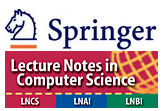Keynote speakers
 |
Speaker: Professor Atsuko Miyaji Topic: Further Application on RFID with Privacy-Preserving. Abstract: Wireless technologies are being developed rapidly to construct smart communications with digital data. Networked devices automatically communicates among themselves in order to carry out efficient information transaction. A Radio Frequency IDentification (RFID) tag with a unique identification numbers uses radio waves to transmit data at a distance. RFID is going to support new technologies such as Internet of Things (IoT), Machine-to-Machine (M2M) RFID system actuates various security and privacy issues concerning its owners and holders without any knowledge of users. Preventing unauthorized access to the owner data (confidentiality), tag tracing (link-ability), identification of the owners (anonymity) are some necessary privacy-protection of RFID systems. A Supply Chain Management (SCM) controls and manages all of materials and information in the logistics process from acquisition of raw materials to product delivery to the end user. It is crucial to construct protocols that enable the end user to verify the security and privacy not only of the tags but also the path that the tag passes through, which means path authentication. Path authentication is one of further application of RFID. In this talk, we summarize previous works to realize authentication schemes, and, then redefine a privacy notion of RFID. We present a new direction that enable the end user to verify the security and privacy not only of tags but also paths that tags goes through. More clearly, if a path-authenticated tag reaches to the end of its supply chain, then the path ensures no intermediate reader was omitted (or selected wrongly) by a tag, either deliberately or not. This would yield not only convenience and efficiency of delivery but also quality of product.
|
|
 |
Speaker: Professor M-Tahar Kechadi Topic: Data Mining on Forensic Data: Challenges and Opportunities. Abstract: The success of the current ICT technologies has reached a level in which we generate huge amount of data outpacing our ability to process it and learn from it. Moreover, the future of these technologies depends heavily on the way security threats, trust, and privacy within this “cloudy” environment are dealt with. Current computing environments are exposing their customers to huge risks for their business and reputation, as attacks and cybercrimes are becoming of huge concerns. Therefore, these customers need to have confidence in their providers in following accredited security and privacy practices. For instance, over the last decade, the number of crimes that involve computers and Internet has grown at a rapid pace and the problem of scale will only escalade the cybercrime phenomenon. Without doubt, the next generation of computing will depend highly on the way large-scale cybercrimes are dealt with, both in developing appropriate and efficient approaches to this problem and also on the amount of effort we put to tackle this phenomenon. In this presentation, we discuss how the investigators can store evidential data and conduct forensics analysis. We will focus on the data mining aspect for automatically pre-processing, analysing the data, and extracting evidence. This will involve redesigning the data mining process to deal with forensic data that is noisy, dispersive, incomplete, and inconstant, which are very challenging.
|
|



